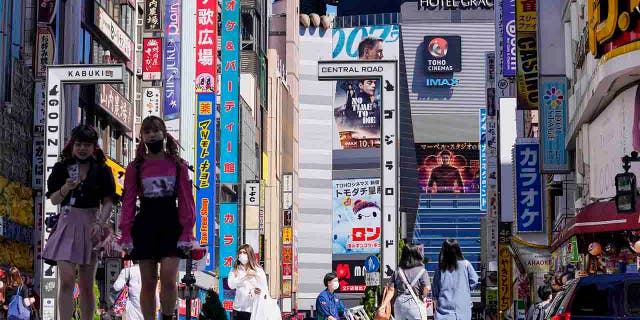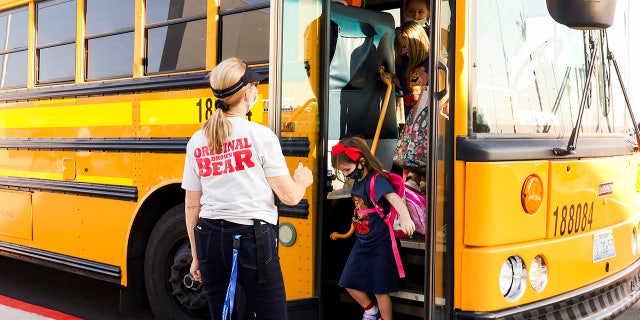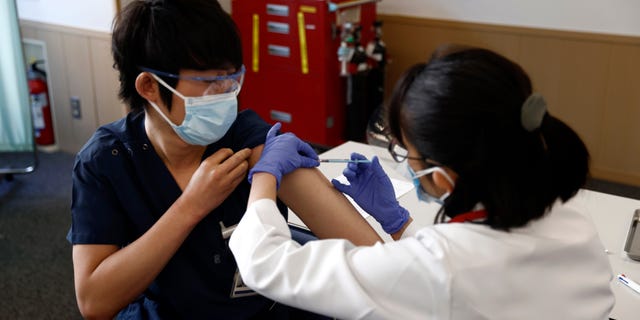
CDC to debate COVID-19 vaccines for children 5-11
Fox News contributor Dr. Marc Siegel weighs in on what the panel will be discussing and reacts to the media coverage of COVID recovery in California vs. Florida.
School closures in Japan during the spring 2020 outbreak of the coronavirus pandemic had no effect on slowing the spread of the virus, a new study has found.
In February last year, the Japanese government requested that elementary, middle, and high schools across the country temporarily close. Some municipalities implemented the closures, while others did not.

FILE – In this Sept. 20, 2021, file photo, people wearing face masks to help protect against COVID-19 walk past a crossing in Shinjuku, an entertainment district of Tokyo. (AP Photo/Kiichiro Sato, File)
(AP Photo/Kiichiro Sato, File)
A team of researchers from Harvard University, Gakushuin University, and Shizuoka University have published a new study in Nature Medicine that examines 847 municipalities in Japan and compares the number of new COVID-19 cases per population among the municipalities that closed schools with the municipalities that did not close between March and June 2020.
The researchers found that the effect school closures had on slowing the spread was “not significantly different from zero.”

A teacher greets students as they get off a bus on the first day of school at the new Hannah Marie Brown Elementary School in Henderson, Nev., Monday, Aug. 9, 2021. Doors opened Monday at schools in and around Las Vegas, where masks were required for the more than 300,000 students and about 18,000 teachers returning to in-person classes at the fifth-largest district in the nation. (Yasmina Chavez/Las Vegas Sun via AP)
“We do not find any evidence that school closures in Japan reduced the spread of COVID-19,” they wrote. “Our null results suggest that policies on school closures should be reexamined given the potential negative consequences for children and parents.”
The researches argued that policymakers should be “cautious” when considering school closures moving forward because of the “substantial costs such policies can have for the well-being of both children and parents.”

A medical worker receives a dose of COVID-19 vaccine at Tokyo Medical Center in Tokyo Wednesday, Feb. 17, 2021. (Behrouz Mehri/Pool Photo via AP)
Those costs, according to the researchers, include learning loss, future earnings loss, the deterioration of physical and mental health, and long-term macroeconomic damage.
In August, the Japanese government ruled out the blanket closures of schools after seeing another uptick in the virus.
Source: Read Full Article